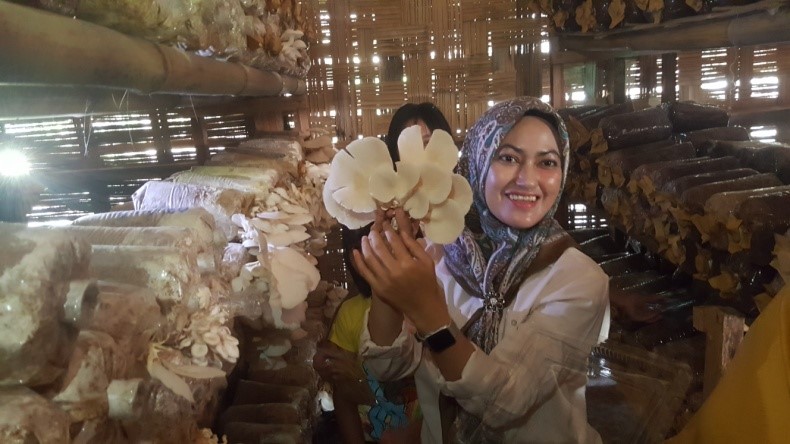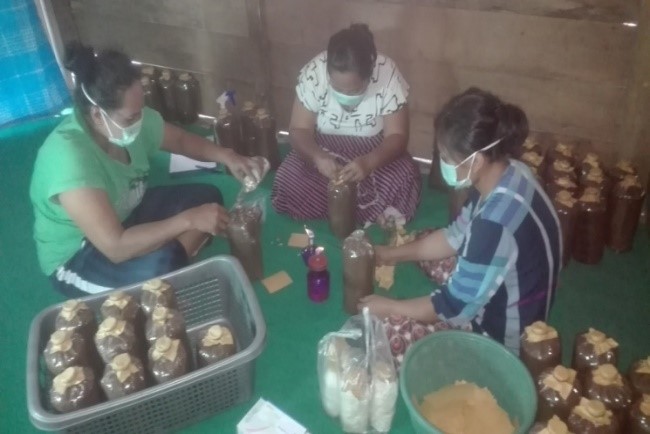
The tropical climate in the assisted area is very suitable for the cultivation of edible mushrooms, especially oyster mushrooms. In Sabbang District, especially in Malimbu Village, there is a sawmill business that produces sawdust waste. Sawdust waste has not been utilized and has become a source of pollution for the Rongkong River. This potential is utilized for the development of edible mushroom production. Sawdust waste can be processed into a growing medium for edible mushrooms.
To achieve this goal, the OWT-WASLIT Consortium through funding from the Millenium Challenge Account-Indonesia (MCA-Indonesia) has built mushroom barn facilities and infrastructure to produce white oyster mushrooms where baglog waste after mushroom production stops can be used as material for making organic fertilizer.

Because mushroom production has begun to be sold, OWT and WASLIT have also provided assistance in group financial administration including the Petty Cash Book and Daily Cash Book so that financial administration can begin to be carried out in an orderly and transparent manner.
Assistance is also provided in processing mushrooms into various food products including mushroom satay, mushroom pepes, mushroom-topped kapurung and mushroom chips.
To support the development of mushroom cultivation, 2 inoculant houses have been built in two locations, namely in Tulak Tallu Village (to meet the needs of mushroom seeds in Salama, Malimbu and Tulak Tallu Villages) and also built in Tandung Village to support Pararra Village. The inoculant house of Tulak Tallu Village was inaugurated directly by the Regent of North Luwu on November 18, 2017. The support of the village government has been demonstrated through plans to allocate village funds to continue these activities.
